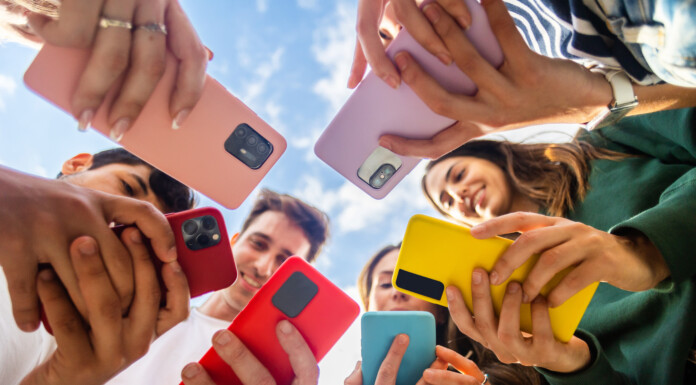I can just about hear the sniggering around the nation’s schoolyards.
There is a brazen plot afoot – the old people are trying to control the use of new technology among New Zealand’s youth. Never fear – because the clever young things are piecing together a strategy so cunning you could pin a tail on it and call it a fox, and they can barely contain their laughter.
Sitting firmly in the “for heaven’s sake, isn’t there something more important to discuss” category for the upcoming election, National leader Christopher Luxon says his party would ban the use of mobile phones in all schools if elected.
It’s a big call.
Luxon said many schools here and overseas have experienced positive outcomes, including improved achievement, after banning the use of mobile phones. Which rather begs the question, why don’t we just let the schools decide what works best for them? National are big on individual choice, are they not?
There is an important distinction to be made here between primary and secondary schools. They are two very different propositions. And there’s no suggestion that mobile phones are not a distraction, or even worse, in our schools.
Already exhausted teachers are having to battle inattentive students more interested in a new TikTok posting than what’s going on in class.
But a total ban? At all schools? Most schools require phones be deposited into a designated area, be it a basket or similar, at the start of each class. Seems reasonable. That said, Wairarapa College has decided to ban mobile phones, following a similar ban by Masterton Intermediate School in October last year.
In my primary school days, last century, the school enforced a ban on playing marbles during break time after a couple of disputes about the rules boiled over into a game of push and shove.
On to secondary school, and a ban on long hair that was poorly thought out and even more poorly administered. The authorities had clearly lost their marbles. I note that soon after I had left school, corporal punishment was made illegal. Better late than never, I suppose.
In 2023, certain modern practicalities must be considered. Kids need to be able to communicate on their way to and from school. There are after-school activities to incorporate, and a quick text or chat can confirm pick-up or arrival home times. It’s a good safety measure.
Of most importance for schools right now is dangerously low attendance and the fast-rising use of vaping. Teachers don’t need another policing job.
Imagine the sheer effort and resources required to enforce a ban on smart devices such as watches.
Let’s finish with some maths.
My old school has a massive role of 3000 students, in large part because they started enrolling girls, and their long hair, at the start of this century.
If it took roughly one minute to take and process a phone or watch as students arrived each day, that would be 3000 minutes of human resource. It would take another 3000 minutes in the afternoon to give them back. That’s 6000 minutes of phone policing.
In the battle of the phone ban, my money is on the young ones.


